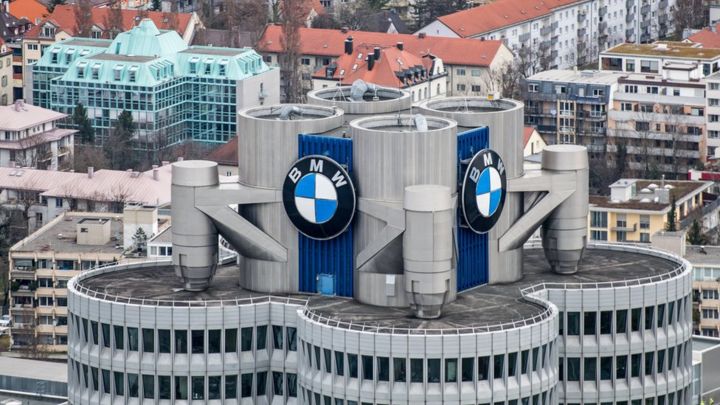https://www.ft.com/content/d096c04e-b5a4-11e7-a398-73d59db9e399?mhq5j=e7
(For commercial purposes, the article can’t be viewed by opening the link directly. Please use Google to search for the news title in order to access the same article of Financial Times)

(Image from BBC.com/news/business: EU officials inspected the Munich offices this week)
Over last weekend, there was a piece of news article making me think deeply about the relations between corporate social responsibility and business development strategy.
According to Financial Times, Europe Union officials made a search at BMW headquarter office in Munich because they suspected the allegations that BMW and other German carmakers have been doing business cartel for decades since 1990 by limiting car prices and emission technology development spendings mutually. If that is a true case, BMW, by definition, will certainly violate anti-trust laws of Europe Union. Particularly, it was alleged that those carmakers agreed mutually to adopt lower-cost components and suppliers, which sacrifices higher emissions as a result.
For responses, BMW said governments should make a clear distinction between anti-trust laws, and manipulations of gas emission. At the moment, BMW has only been accused of anti-trust violations, but not manipulations of gas emissions.
Financial Times announces further that major car companies from Germany often make partnerships together to cooperate and set up standards in order to make automobile industry as an entirety move further, which is the strategic business development for economic growth at a macroscopic level. On the one hand, common standards can not only make suppliers’ jobs much easier but also benefit large consumer bodies more conveniently. On the other hand, the boundaries between cartels and partnerships are often blurry and hard to tell.
Certainly, I totally understand there is no way for managers at such super larger organizations as BMW to do jobs easily. It’s often just one step away from jail once a manager is in charge of a large multinational corporation. However, as an upright citizen with strong beliefs in corporate social responsibility, I really don’t like BMW’s crafty response or even excuse: because they are not accused of manipulations of gas emissions, they should be free from violation claims for adopting lower-cost components with higher gas emissions.
Environment protection should always be the sustainability goals of every citizen and every company for this planet; furthermore, BMW and other major German car companies who exert huge influences on environments even use the commercial power to mutually adopt components with higher gas emissions because of lower costs and higher profitability. Such actions should be strongly criticized although they are not qualified to be legal violations.
Business partnership for strategic development is always important and mutually beneficial; however, besides the monetary factors in company budgets, companies should always take environmental and social effects into consideration when doing decision makings. There is no clear separation between partnership and cartel; meanwhile, I would like to say, there is also no clear separation between business strategy and corporate social responsibility. Why not make a great balance together?
Word Count: 449
